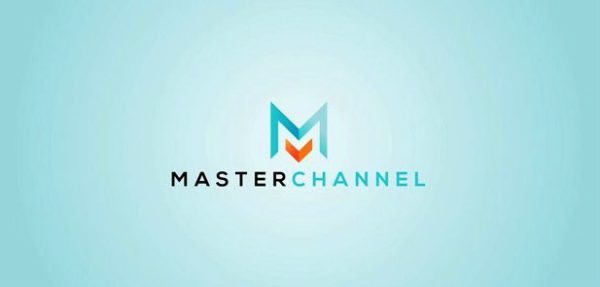This week, I’ve been holed up in the Ritz-Carlton Hotel in Marina del Rey, California — granted, if you’re going to be holed up, that’s a good place to do it — for the Spring edition of the Digital Hollywood conference, which explores the confluence of entertainment and technology.
I’ve been hearing a lot about virtual-reality gear, new ways to get TV programming, marketing, financing, technical innovation — there was even a Digital Israel session, with some impressive tech (did you know Israel gave us the Glide and Waze apps?). But what I find myself thinking about, over and over, what can we do with all this?
One thing I’ll grant to the Evangelical community, especially the megachurches, is their entrepreneurial drive. They’re not shy about using whatever technical, marketing or social-outreach strategies that exist to get the Word out. Take a look at the Website for The City Church in Seattle, run by Pastor Judah Smith, whom I wrote about here.
The comparison of the professional look and feel of this site put up against some of the Catholic parish and ministry sites I’ve seen is not encouraging (yeah, they have the money, but you get the money by getting the bodies into the church). St. Monica’s in Santa Monica, California, is a well-heeled parish with a huge congregation, a lot of outreach and a significant young-adult membership. It specializes in Masses with professionally produced contemporary music and theatrical elements. It’s the closest thing to a megachurch experience I’ve personally witnessed in a Catholic setting. Even so, its Website is not nearly as visually attractive or emotionally engaging.
St. Monica’s progressive take on the Faith may not appeal to all Catholics (it’s not my cup of tea), but it’s intriguing to think what could be done with a vibrant parish life (or lay ministry or Catholic performer), wedded to orthodox teaching, wedded to sophisticated branding and a high-quality Internet outreach. We’re doing it, but not nearly well or often enough.
We don’t have to water down the message, but we can sure spiff up the messenger, as Catholic musician Matt Maher and lay evangelist Chris Stefanick have done on their slick, attractive sites (but, Chris, please kill that autoplay video. Autoplay video should be a sin).
A big theme at Digital Hollywood is branding, creating a cohesive, compelling image and strategy that reflects what you’re about, and ways to connect with people who want to take in what you’re offering.
I had a chat with Nashville-based Dale Manning, the CSO (Chief Strategy Officer) and founder of the MasterChannel enterprise platform, a husband and father, who concludes his his bio at his Website with: “All of this with a keen realization that HE>i,” a reference to a Website for a Hawaiian company, called heisgreaterthani.com, inspired by John 3:30: “He must increase; I must decrease.”
The philosophy of MasterChannel is to allow artists — primarily musicians, including Christian bands Third Day and Casting Crowns, but it’s applicable to many other things — to take control of their fan base and the revenue that comes with it, and to offer an attractive, interactive and compelling platform for fan engagement.
As the company’s philosophy statement says:
MasterChannel builds and preserves brand equity by centrally uniting fans with content, products and communities, unlocking profit potential while creating deeper, richer, lasting experiences. It allows businesses to take back control of their brands by creating their own fully integrated digital ecosystem that cultivates a singular relationship with its customers. The solution is entirely responsive and moves seamlessly between desktop, laptop, smartphone and tablet.
Right now, explains Manning, artists build a Website and then essentially outsource promotion to social-media sites like Facebook, Twitter, Instagram, Pinterest, etc.
He said:
The sobering realization is that you don’t own the relationship, someone else does, and you use their channels to talk to them. We have the band The Doors, and they have 16 million Facebook likes. I’m sitting back, and I’m The Doors, “Great, I’ve got 16 million people who say they like me.” If I want to send a message, any message, to all 16 million of my fans, I pay Facebook $81,000.
Because, out of those fans, Facebook has whittled it all the way down to a random 2% of those 16 million that will see something. It’s sobering for brands who spend a lot of time and effort building up, and then the realization of, :I really don’t own this relationship, Facebook does.”
What the artist does own is their own media, their dot.com, their email list, their mobile applications. All these things could go to a direct channel. They own that, and they have influence on that. So, why not build your house there instead of in social media?
This is not about separating yourself or isolating yourself from social. It’s about using those things to bring the relationship back to your side of the ledger. That’s what we’ve been building. The sensibility is, we started in music, because we have deeper roots there, but it’s moving into celebrities, television shows, athletes.
People are at the painful realization, when they spent tons of money and effort to build up their MySpace channel, and the value of that went completely to zero. Whether Facebook survives or not, becomes obsolete or what have you, all these brands are running the risk of being short-term benefits, not realizing the long term … we like to use the term “brand equity solutions,” because if you really look at it, there’s a lot of missed opportunity when we just do it the easy way versus doing it the right way.
Build your fame on some platform, and when you do, the person who provided the platform is going to make a lot of money off of you if that’s the only thing you do, so how do you take that and make it your own?
As Catholics, we have the greatest brand in the history of the world, and while we may not like the idea of selling it that way, if we want to grow and save more souls, we’ll may need to get used to it and embrace it. The Holy Spirit gave the Apostles the gift of tongues to preach the Gospel to all nations, now we need to learn to speak the language of modern marketing and technology, as individuals, ministries, parishes and a Church.
Said my friend and Catholic businessman/blogger JM Garcia, former strategic consultant and current CEO of Florida-based 1:10 Skincare, “Of the current realities to which companies and other institutions must adapt — all of which involve the wise application of entrepreneurial principles — possibly the most crucial one is that of ‘branding.’
“To this end, technology, such as MasterChannel’s platform, is to be embraced intelligently, and not feared, shunned or left to ‘the other guys’ out of a stuntedly earnest sense of nobility-of-purpose; this is the same sort of thinking that supposes it’s more virtuous to dig with a spoon than with a bulldozer.”














